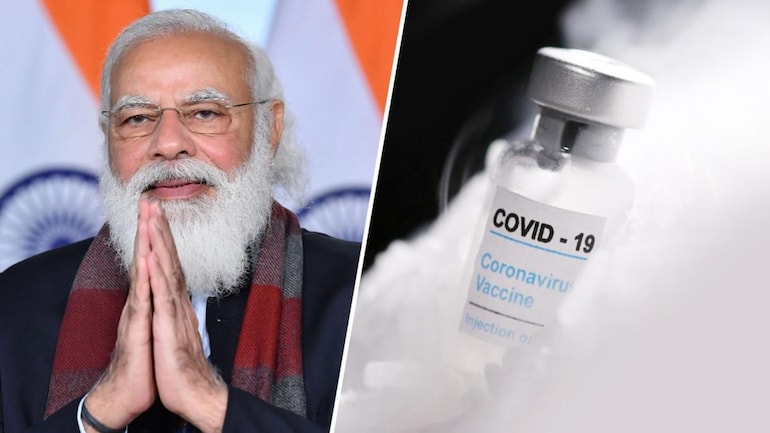At the GAVI Virtual Vaccine Summit in June last year, Prime Minister Narendra Modi had said: “India not only has the capacity to contribute to global health efforts, but also has the will to do so in a spirit of sharing and caring”.
Likewise, in his speech to the United Nations General Assembly in September 2020, he had said: “India’s vaccine production and delivery capacity will be used to help all humanity in fighting this crisis.”
Keeping true to this, within five days of a national rollout, Bhutan was the first among India’s neighbours to receive the Made-in-India vaccine.
Graciously accepting this gift, Prime Minister Lotay Tshering emphasized altruism at its best when he said: “It is of unimaginable value when precious commodities are shared even before meeting your own needs, as opposed to giving out only after you have enough”.
In doing so, India stimulated a process of regional access to the vaccine, in embodying also global leadership for the development and distribution of the Covid vaccine.
How did we get here? While full tribute must be paid to our scientists and researchers who have spent hours in their labs, this is also the culmination of a carefully crafted initiative – one that has emphasized self-reliance and self-confidence, whilst being rooted in care and compassion.
In May last year, Prime Minister Modi had recognised the imperative of building deep national strengths and had launched the Aatma Nirbhar Bharat Abhiyan or the Self-Reliant India Campaign.
In its wake and from being a net importer of essential medical items as these were required during the pandemic, India transformed herself into an exporter, besides of course meeting her own domestic demand. Thus, foreign policy began at home, in the belief that a strong economy would allow us to be heard in the world.
Prior to the outbreak of the coronavirus pandemic, India was a country where PPEs and ventilators were not made, where N95 masks were assembled in meagre quantities. In a short span, we paved a path by supplying essential medicines, test kits and protective gear worth around USD 11 million to 89 countries, including Bhutan.
As the demand for medicines, especially Hydroxychloroquine and Paracetamol, increased last year, India ramped up its production and supplied these medicines to over 150 countries. In more than half of the countries, supplies were free of cost.
A number of medical supply missions were also undertaken globally – from South Asia to South America and from Australia to Africa.
We also initiated regional and multilateral consultations emphasising the need for countries to unite in the collective fight against the pandemic. This initiative brought together members of the SAARC countries in March last year with a strong conviction for change. Walking the talk, India announced a USD 10 million COVID-19 Emergency Fund for SAARC, which has been utilised to deliver urgent medical supplies, equipment and humanitarian assistance to our neighbours.
Further into the year – the steady pace was sustained. Three candidate vaccines, among others, appeared as early birds: Covishield of the Serum Institute of India; COVAXIN of Bharat Biotech and the Indian Council of Medical Research and ZyCov-D of Zydus Cadila. On 9 December 2020, over 60 foreign envoys including from Bhutan were taken on visit to the facilities of Biological E and Bharat Biotech, located in Hyderabad. The general sentiment amongst envoys was one of approbation, where India in the spirit of vasudhaiva kutumbakam was seen to be working not just for itself but for the greater global good.
It is worth noting that the Indian vaccine sector accounts for 60 percent of global vaccine production, and supplies 1.5 billion doses per year, with exports of USD 410 million to over 150 countries. India is the largest supplier of the DPT, BCG and Measles vaccines and about 70 per cent of WHO’s vaccine requirements are sourced from India. GAVI, the vaccine initiative and the Gates Foundation also pick vaccines in bulk from India. We have proven strengths in research and development of new and improved candidate vaccines for several infectious diseases.
Through these COVID months, India has walked in step with Bhutan, steadfast and committed. We are honoured that ourgestures have been appreciated by the Bhutanese leadership. As always, we view this as a portrayal of our special bond and above all, a reflection of our ancient ties, unbroken and ever growing.
The sacred Dhammapada has said: “Good health is the greatest gift, contentment is the greatest wealth, a trusted friend is the best relative.”
India will always be a loyal friend to Bhutan.
Contributed by Indian Ambassador to Bhutan, Ruchira Kamboj


